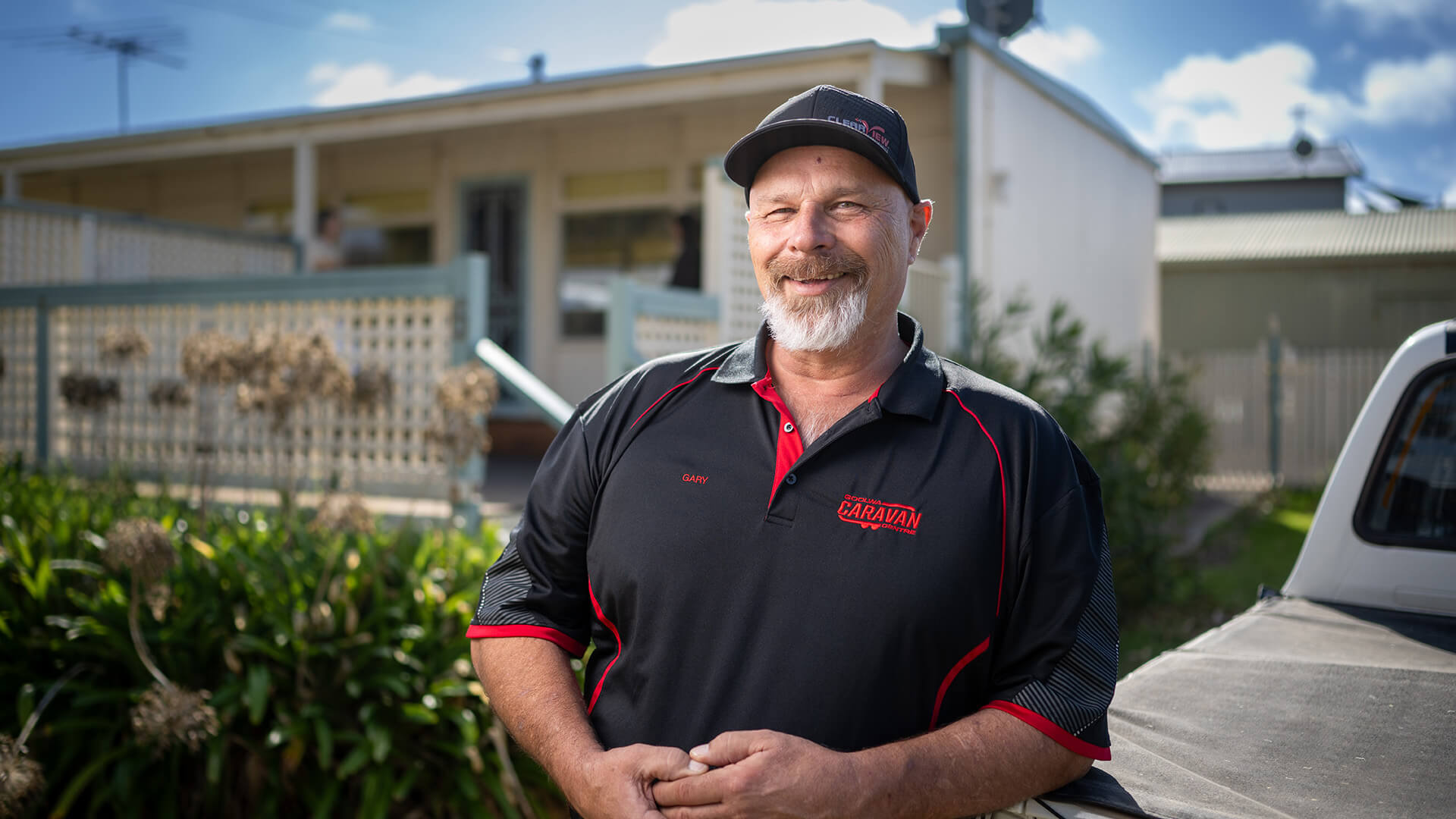If you're living with dyslexia and looking for a job, the process can be challenging.
That's why helping you find a fulfilling job, in a workplace that supports your long-term mental wellbeing is our mission.
ترجمة هذه الصفحة 1. في الزاوية اليمنى العليا من المتصفح، انقر فوق النقاط الثلاث 2. انقر فوق "ترجمة..." من قائمة الخيارات 3. ستظهر قائمة ترجمة Google مع خيارات اللغة الافتراضية - انقر فوق أحدها لترجمة الصفحة 4. إذا كنت لا ترى لغتك في القائمة، فانقر على النقاط الثلاث في قائمة ترجمة Google وحدد "اختيار لغة أخرى" 5. افتح القائمة المنسدلة وحدد لغتك
ترجمة هذه الصفحة 1. انقر بزر الماوس الأيمن على الصفحة وحدد الخيار المسمى "ترجمة إلى..." 2. إذا كانت اللغة الافتراضية غير صحيحة، فانقر فوق رمز اللغة في شريط URL 3. افتح القائمة المنسدلة وحدد لغتك من القائمة
ترجمة هذه الصفحة 1. في الزاوية اليمنى العليا من شاشتك، انقر فوق أيقونة قائمة البرجر (3 خطوط أفقية) 2. انقر فوق "ترجمة الصفحة..." من قائمة الخيارات 3. في القائمة المنسدلة "ترجمة إلى"، حدد لغتك
ترجمة هذه الصفحة 1. انقر فوق رمز اللغة الموجود على الجانب الأيمن من شريط URL الخاص بك أعلى الصفحة 2. من قائمة الخيارات المتاحة، حدد لغتك
احتياطي
翻译此页 1. 在浏览器的右上角,单击 3 个点 2. 从选项列表中单击“翻译...” 3. 将出现一个带有默认语言选项的 Google 翻译菜单 - 单击其中一个即可翻译页面 4. 如果您在列表中没有看到您的语言,请点击 Google 翻译菜单中的 3 个点,然后选择“选择其他语言” 5. 打开下拉菜单并选择您的语言
翻译此页 1. 右键单击页面并选择标有“翻译为...”的选项 2. 如果默认语言不正确,请单击地址栏中的语言图标 3. 打开下拉菜单并从列表中选择您的语言
翻译此页 1. 在屏幕右上角,单击汉堡菜单图标(3 条水平线) 2. 从选项列表中单击“翻译页面...” 3. 在“翻译为”下拉列表中,选择您的语言
翻译此页 1. 单击页面顶部网址栏右侧的语言图标 2. 从可用选项列表中,选择您的语言
倒退
翻譯此頁 1. 在瀏覽器的右上角,按一下 3 個點 2. 從選項清單中點選“翻譯...” 3. 將出現一個帶有預設語言選項的 Google 翻譯選單 - 點擊其中一個即可翻譯頁面 4. 如果您在清單中沒有看到您的語言,請點擊 Google 翻譯選單中的 3 個點,然後選擇“選擇其他語言” 5. 開啟下拉式選單並選擇您的語言
翻譯此頁 1. 右鍵單擊頁面並選擇標有“翻譯為...”的選項 2. 如果預設語言不正確,請點選網址列中的語言圖標 3. 開啟下拉式選單並從清單中選擇您的語言
翻譯此頁 1. 在螢幕右上角,點選漢堡選單圖示(3 條水平線) 2. 從選項清單中點選“翻譯頁面...” 3. 在「翻譯為」下拉清單中,選擇您的語言
翻譯此頁 1. 點選頁面頂部網址列右側的語言圖標 2. 從可用選項清單中,選擇您的語言
倒退
ترجمه این صفحه 1. در گوشه سمت راست بالای مرورگر خود، روی 3 نقطه کلیک کنید 2. از لیست گزینه ها روی "Translate..." کلیک کنید 3. منوی Google Translate با گزینه های زبان پیش فرض ظاهر می شود - برای ترجمه صفحه روی یکی کلیک کنید 4. اگر زبان خود را در لیست نمیبینید، روی 3 نقطه در منوی Google Translate کلیک کنید و «انتخاب زبان دیگری» را انتخاب کنید. 5. منوی کشویی را باز کنید و زبان خود را انتخاب کنید
ترجمه این صفحه 1. روی صفحه کلیک راست کرده و گزینه با عنوان "Translate to..." را انتخاب کنید. 2. اگر زبان پیش فرض درست نیست، روی نماد زبان در نوار URL کلیک کنید 3. منوی کشویی را باز کنید و زبان خود را از لیست انتخاب کنی
ترجمه این صفحه 1. در گوشه سمت راست بالای صفحه، روی نماد منوی همبرگر (3 خط افقی) کلیک کنید. 2. از لیست گزینه ها روی "ترجمه صفحه..." کلیک کنید 3. در منوی بازشوی «ترجمه به»، زبان خود را انتخاب کنید
ترجمه این صفحه 1. روی نماد زبان در سمت راست نوار URL خود در بالای صفحه کلیک کنید 2. از لیست گزینه های موجود، زبان خود را انتخاب کنید
بازگشت به عقب

If you're living with dyslexia and looking for work, you aren't alone.
The Australian Dyslexia Association estimates that dyslexia also affects 10% of people living in Australia, as well as many successful people you might be familiar with such as Jamie Oliver, Muhammed Ali, Tommy Hilfiger, and Jennifer Anniston.
Searching for fulfilling work while managing your mental health and dyslexia symptoms can be tricky, and it's our mission to support you to not only find meaningful work, but also thrive in your workplace.
Finding meaningful work while living with dyslexia is worthwhile as it can:
Below, you’ll find advice on understanding how to identify your strengths, learn what you really need from a job and get ideas of job roles that may fit your needs when living with dyslexia.
Your journey and situation are your own, and discovering what will work for you is an essential part of that journey.
Keep reading for tips on finding a job while living with dyslexia.

People living with dyslexia are capable of finding fulfilling work in a range of different job roles and workplaces.
Symptoms, skills and interests vary from person to person. In your job search, focus on finding a job that enhances your individual strengths and helps you manage your mental health.
While everyone’s experience living with dyslexia is different, you may like to consider the following features:
If your dyslexia symptoms make it difficult to stick to long working hours or a structured work environment, you might prefer a flexible role. A growing number of jobs can be done from home with a flexible schedule and workload.
Having a sense of purpose in your day-to-day work can help you stay focused and inspired. When you feel passionate about what you’re doing, it can give you the motivation and drive you need to excel at your job.
Are you a strong visual thinker? Are you good with problem-solving or have strong communication skills? Or maybe you have a knack for spatial awareness?
Think about how your skills and strengths make you a valuable addition to different types of workplaces.

Everyone experiences dyslexia differently, which means there is no one-size-fits-all list of best jobs for you.
However, here are some ideas to get you thinking about what might work for you.
When looking for the best options for work, you should consider your individual strengths, skills, needs and capabilities.
It’s important to remember that the kind of job that is right for one person may not be right for everyone.
If you would like more support, speaking to an employment consultant at APM can also help you discover other opportunities you may not have considered before, or that may be more suitable specifically for you.
Please note - these job and career suggestions may not be suitable for everyone with dyslexia. These suggestions may suit some people depending on their circumstances including, but not limited to, their current experience with dyslexia.
If you're living with disability, injury, or a health condition, there is support available to help you reach your goals.
If you are eligible for Disability Employment Services, (people with dyslexia may qualify for support), APM can provide support to assist you to find work.
Disability Employment Services is a government-funded program designed to help you find and keep work and is provided at no cost to participants.
You may be eligible for help with:



APM supports people with disability, injury, or a health condition through various programs and services across its businesses, including Disability Employment Services in Australia.
The information contained in this article is for educational and informational purposes only and is not intended as health or medical advice. Always consult a physician or other qualified health provider regarding any questions you may have about a medical condition or health objectives.
When discussing disability, APM’s copy style is to use person-first language and the social model of disability in the first instance. Some articles may use identity-first language or refer to the medical model of disability for clarity or to better suit a specific audience.
If you have any questions or feedback about the content of this article, visit our Feedback page to get in touch or email support@apm.net.au